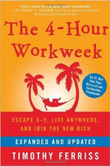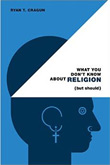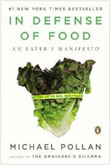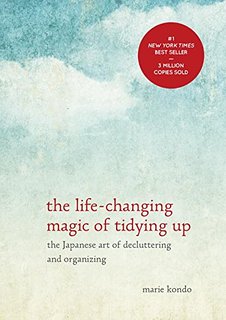The Medium that is our Mind: A McLuhanesque Meditation
Brandon Sun, June 24, 2019 - David McConkey
Something profound is going
on with media today, especially smartphones and social media. But
how do you understand a revolution when you are in the midst of it?
Coming in handy here is recalling Marshall McLuhan, the late media
guru. To get a better sense of where we are in the media landscape,
I offer a meditation in four McLuhan-inspired probes.
MARSHALL McLUHAN
Who was Marshall McLuhan? During the 1960s and ‘70s,
McLuhan was an intellectual superstar. He was read by some; he was
quoted by many more. McLuhanisms – like “global village” – became
ubiquitous. McLuhan even made a cameo appearance in the Woody Allen
film Annie
Hall.
And he was Canadian. Born in Edmonton in 1911, McLuhan grew up in
Winnipeg and attended the University of Manitoba. He became an
English professor and spent most of his career at the University of
Toronto. McLuhan died in 1980.
McLuhan is still hotly debated. Like: Were his ideas nuts? Maybe,
but for me, McLuhan’s notions are an invitation to take another
look, to see a bigger picture. McLuhan characterized his
pronouncements less as concrete conclusions and more as playful
“probes.” A McLuhanism can be a tool prodding us into a new insight,
like a Zen riddle.
MEDIUM MESSAGE
McLuhan’s first book, The Mechanical Bride in 1951, was about
popular culture, like advertising and the comic strip character
Dagwood Bumstead. After that, McLuhan shifted from studying the
content of a medium to the medium itself.
Because we are drawn to the content, we fail to notice the medium.
To get informative and entertaining content, we might turn to, for
example, a newspaper, the radio or TV. But McLuhan’s contention was
that – regardless of content – each medium has its own impact on us.
We are influenced differently when we read a newspaper or listen to
the radio or watch TV. McLuhan’s famous 1964 book was Understanding Media. McLuhan’s famous aphorism
was “the medium is the message.”
McLuhan did not live to see the personal computer, internet,
smartphone or social media. But his ideas are still relevant –
perhaps even more relevant – today. As technology and society
advance, I often think: What would McLuhan say now? Like, what would
he say . . . about texting? About Twitter? About Trump?
MASS-AGE MASSAGE
McLuhan was a punster. One of his puns was a play on his own words:
“the medium is the massage.” (He also played with: “the medium is
the mass age.”) The massage observation is especially prescient.
Today’s social media and smartphone work us over more thoroughly and
more intimately than media of the past.
We used to make conscious decisions: to pick up a book, turn on the
TV, leaf through a magazine, go to the movies. But today, the
internet is always there, the phone is always with us, the content
is always streaming.
We are now immersed in the “attention economy.” The attention – of
billions of us – has become a major commodity. Sophisticated website
algorithms manipulate us by grabbing our attention. We look at our
phone 150 times a day. Soon we will be connected to everything: the
“internet of things.” Talk about a massage! Talk about a mass age!
MINDFUL MEDITATION
McLuhan challenged us to look beyond the content and examine the
medium itself. But what if we could take an even bigger step back,
gain an even deeper understanding? What if we could observe the
nature of our own mind?
What the heck am I talking about? Well, we experience the world
through our mind. In McLuhanesque terms, we might think of our mind
as the “medium” and the world as the “content.” By paying attention
to the medium that is our mind, we might become more aware of our
experience of the content that is the world. A way of paying
attention and noticing the working of our mind is mindfulness
meditation.
Today we are becoming absorbed in – even addicted to –
all-encompassing media. Perhaps we can take back some control by
being more mindful. Being mindful can be an alternative to being
mindlessly lost in media.
Mindfulness meditation is attracting increasing interest in the
western world. But it has long been a practice in Buddhist and other
eastern traditions. To draw attention to this kind of cultural
change, McLuhan coined an expression inspired by the novelist James
Joyce. That McLuhanism was: “The East shall shake the West awake.”
See also:
Marshall McLuhan on Amazon.com
Deepening Our Thinking in the Internet Age: Ten Tip
What Can We Learn from the New Science of Psychedelics?
Exploring What's Lost in a
Connected World
Popular Right Now:
- 15 Tips for Healthy Eating
- Quality of Life, Well-Being Research Something We Can Feel Good About
- Diets Don't Work, So What Does?
- Political Contributions: Top Ten Canadian Tax Tips
- Nestle Fitness 14 Day Weight Loss Program; What is Wrong Here?
- Charitable Donations: Top Ten Canadian Tax Tips
Must Read Books:
The 4-Hour Workweek:
Escape 9-5, Live Anywhere, and Join the New Rich

What You Don't Know About Religion (But Should)

In Defense of Food:
An Eater's Manifesto

The Life-Changing Magic of Tidying Up:
The Japanese Art of Decluttering and Organizing

Don't
Even Think About It:
Why Our Brains are Wired to Ignore Climate Change

Like This? Share It!
Press Ctrl + D to Bookmark!
